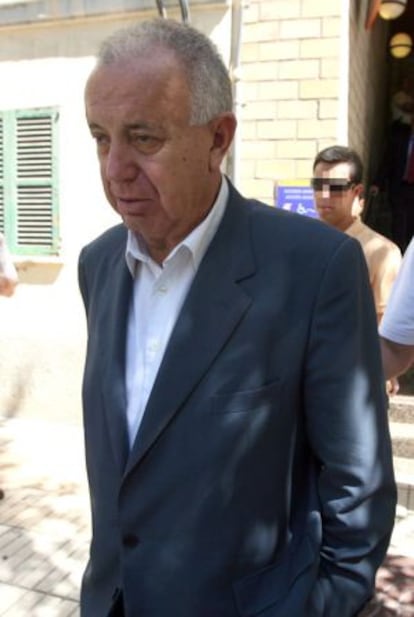Seven-year sentence for Ibiza hotel chain owner who exploited workers
Head of Grupo Playa Sol also withheld millions of euros a year in taxes Businessman argued he had “created a lot of jobs” on the popular Balearic island

The owner of Ibiza’s largest hotel chain has been given a seven-year prison sentence, after going to trial for having created a business empire without paying taxes or respecting labor rights.
Fernando Ferré Cardó, 69, admitted that he had built his business by tapping the underground economy, but argued that he had “created a lot of jobs” over the years on the popular Balearic island.
In just a decade, his Grupo Playa Sol (GPS) business grew to encompass 40 hotels and apartment blocks, 11,000 beds and 1,000 employees. Around 350,000 tourists used these services each summer.
The Anti-Corruption Prosecutor for the Balearics, Pedro Horrach, had called for an 81-year jail sentence for Ferré Cardó for tax fraud and labor exploitation, but an out-of-court settlement led to the seven years, a fine of €18.2 million and a further €17 million in compensation to the state.
The defense has asked that Ferré Cardó avoid jail time due to his advanced age and poor health. When he was arrested in 2010, the entrepreneur suffered heart arrhythmia and was hospitalized.
State prosecutors said that Ferré Cardó evaded around €3 million a year in corporate tax and around €800,000 of VAT. Besides that, he was accused of exploiting his personnel, whom he paid €3.50 an hour for 16-hour workdays with no days off. Many of these workers (up to 477 were hired in a single year) were “needy” immigrants who were “forced to accept abusive labor and social security conditions.”
Personnel slept in basements, in conditions described as “completely contrary to human dignity”
This is not the first time that Ferré Cardó has been found guilty by the courts. In 2009 he was given a two-year sentence for threats against and assault of 13 employees at three hotels. After negotiating compensation, however, he escaped prison time. He has also paid millions of euros in fines for illegally hiring workers to renovate old hotels.
The entrepreneur had no current accounts to his name in any bank, and led a simple life. He always ate at his own hotels and paid for everything in cash. While his office had no computers inside, it did contain a document shredder, as well as five empty safes.
It took 30 investigators several months to make sense of the numbers
Nearly 500 employees from Eastern Europe were hired every summer in Prague and brought to Ibiza to work for €300 a month, with no social security affiliation. Personnel slept inside basements, in conditions described as “completely contrary to human dignity” by the attorney Horrach.
In 2010 the entrepreneur was arrested and jailed for two months over the tax fraud scandal. Since then he had been free pending trial.
Investigators concluded that the complex web of companies — as many as 301 — that made up the group was specifically designed to make the work of tax inspectors as hard as possible. It took 30 investigators several months to make any sense from the numbers and balance sheets. In many cases, a company had a double accounting system: an official one and a secret one reflecting tax-free payments.
When the owner was arrested in 2010, GPS went into administration. In 2013 the group stopped meeting all payments and declared debts of €300 million. Since then, administrators have been trying to refloat the hotel chain, which is in search of buyers.
Tu suscripción se está usando en otro dispositivo
¿Quieres añadir otro usuario a tu suscripción?
Si continúas leyendo en este dispositivo, no se podrá leer en el otro.
FlechaTu suscripción se está usando en otro dispositivo y solo puedes acceder a EL PAÍS desde un dispositivo a la vez.
Si quieres compartir tu cuenta, cambia tu suscripción a la modalidad Premium, así podrás añadir otro usuario. Cada uno accederá con su propia cuenta de email, lo que os permitirá personalizar vuestra experiencia en EL PAÍS.
¿Tienes una suscripción de empresa? Accede aquí para contratar más cuentas.
En el caso de no saber quién está usando tu cuenta, te recomendamos cambiar tu contraseña aquí.
Si decides continuar compartiendo tu cuenta, este mensaje se mostrará en tu dispositivo y en el de la otra persona que está usando tu cuenta de forma indefinida, afectando a tu experiencia de lectura. Puedes consultar aquí los términos y condiciones de la suscripción digital.








































